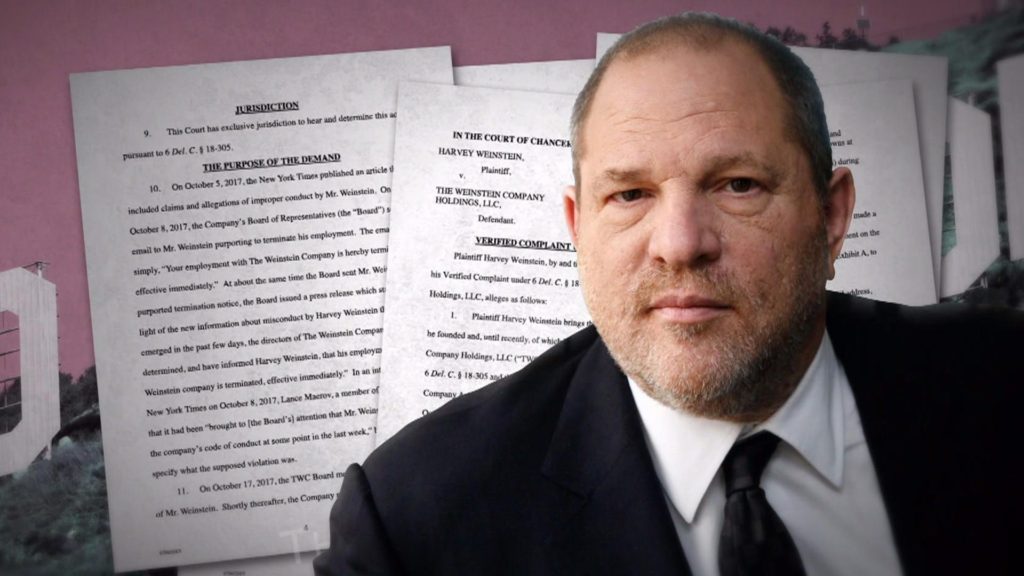Written by Sara Lupi
On May 30, 2018, a grand jury in Manhattan indicted film producer Harvey Weinstein and charged him with Rape in the First Degree, Rape in the Third Degree, and Criminal Sexual Act in the First Degree. Although several women have alleged that Weinstein committed these and similar crimes, the indictment brought by the Manhattan District Attorney’s Office only named two victims. If the case proceeds to trial however, the prosecution may attempt to bring in evidence of Weinstein’s similar past behavior, for the purpose of establishing a pattern of sexual assaults.
Earlier this year, during comedian Bill Cosby’s retrial for sexual assault charges, prosecutors in Pennsylvania utilized the “Doctrine of Chances” as a way to call five other accusers to testify against Cosby. In Pennsylvania, the Doctrine of Chances is a narrow exception which operates similarly to Federal Rule of Evidence 404(b), which bars evidence of prior bad acts for the purpose of establishing propensity to commit a certain crime, but allows such evidence for other purposes. Evidence of prior bad acts can be admitted in order to establish something other than propensity “such as proving motive, opportunity, intent, preparation, plan, knowledge, identity, absence of mistake, or lack of accident.” In the Cosby trial, the five other accusers had reported sexual assaults similar to the sexual assault on the victim by Cosby. In a pretrial motion, the Montgomery County District Attorney wrote, “as the number of victims reporting similar, drug-facilitated sexual assaults by defendant increases, the likelihood that his conduct was unintentional decreases … defendant’s prior bad acts are admissible under the “doctrine of chances” to negate the presence of any non-criminal intent and, concomitantly, to establish an absence of mistake.”
The Molineux Rule
In New York State, where Weinstein is going to be tried, the Doctrine of Chances is known as The Molineux Rule, which gets its name from a New York State Court of Appeals decision in the case of People v. Molineux. Under this rule, prosecutors can bring in proof of a defendant’s prior bad acts or crimes not to show criminal propensity, but to “establish motive, opportunity, intent, common scheme or plan, knowledge, identity or absence of mistake or accident.” [1] It should be noted that New York State has not adopted Federal Rule of Evidence 413, which allows evidence of similar crimes in sexual assault cases for the purpose of proving propensity to commit sexual crimes. So, even though Molineux has the potential to let evidence of similar prior bad acts in at trial, the bad acts cannot be used to prove propensity, but rather to show one of the previously mentioned purposes.
The exception is used rarely in New York State, because evidence of prior similar bad acts is considered highly prejudicial. The probative value must be weighed against the prejudice the evidence would cause the defendant. Additionally, the “evidence must be ‘highly probative’ and ‘directly relevant’ to the purpose for which it is offered and have a natural tendency to prove such purpose.” This is an extremely high threshold for prosecutors. The rationale behind Molineux is that if a defendant commits the same bad acts, or commits the same crime multiple times, in a similar manner, there is a high probability that this is not just coincidence.
How Molineux May Be Used in the Case Against Weinsten
Here, many of Weinstein’s accusers have brought forth similar stories of his abuse, which has been called “casting-couch abuse.” Women allege that Weinstein took advantage of his position as a Hollywood producer to force young actresses into having sex with him or performing other sexual acts. Weinstein’s own defense attorney, Benjamin Brafman, told the press after his arraignment that Weinstein “did not invent the casting couch in Hollywood,” which has been seen as a glimpse into a possible defense for his client: that this was not rape, but rather a choice made by each actress in an effort to advance their careers. However, this comment also foreshadows the possible use by prosecutors of the Molineux Rule, to show that Weinstein’s alleged actions were part of a common scheme or plan.
Currently, it is unclear whether Weinstein’s case will proceed to trial. While he has entered a plea of not guilty, some experts believe the case may end with a plea bargain. His defense attorney has stated that if the case does go to trial, he will consider attempting to sever the rape charges from the charge of criminal sexual act, and proceed with two separate trials. His next court date is scheduled for September 20th in Manhattan.
Sources
Aaron Katersky and Bill Hutchinson, Harvey Weinstein pleads not guilty to rape charges, ABC News (June 5, 2018), https://abcnews.go.com/US/harvey-weinstein-pleads-guilty-rape-charges/story?id=55659315.
Danny Cevallos, How Weinstein lawyer’s ‘casting couch’ comment could impact his defense strategy, NBC News (May 27, 2018), https://www.nbcnews.com/news/us-news/how-weinstein-lawyer-s-casting-couch-comment-could-impact-his-n877916.
Debra Cassens Weiss, Harvey Weinstein is indicted; could other accusers testify at trial? ABA Journal (May 31, 2018), http://www.abajournal.com/news/article/harvey_weinstein_is_indicted_could_other_accusers_testify_at_trial.
Fed. R. Evid. 404(b), 413.
Montgomery County District Attorney’s Office Motion to Introduce Evidence of 19 Prior Bad Acts of Defendant, Jan. 18, 2018.
People v. Molineux, 168 N.Y. 264 (1901).
People v. Cass, 784 N.Y.S.2d 346 (Kings County 2004).
Tracy Connor, Harvey Weinstein surrenders to NYC police, is charged with rape, NBC News (May 25, 2018), https://www.nbcnews.com/storyline/harvey-weinstein-scandal/harvey-weinstein-surrenders-nyc-police-station-face-sex-charges-n877416.

